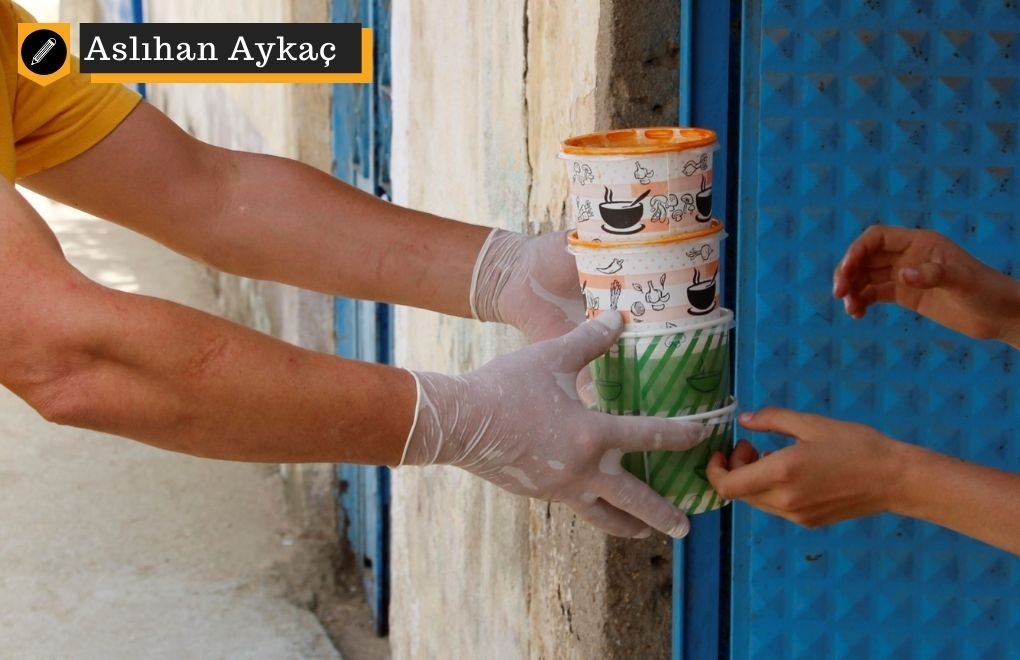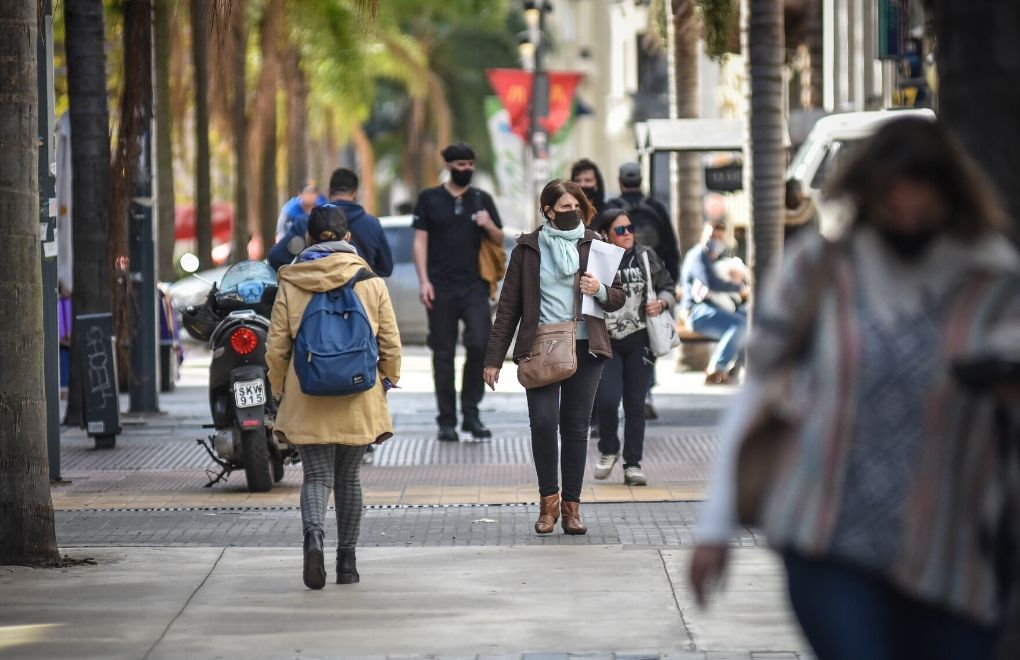Click to read the article in Turkish
The whole world is facing an unprecedented challenge due to the pandemic. While the immediate concern for many countries is the health and survival of citizens, the successful recovery from the overall impact of the pandemic is more of an economic issue than a medical one.
The ability to control the spread of the virus, contingency plans to cover for the economic loss caused by lockdowns, the efforts to find a vaccine and the overall maintenance of the public health and public education systems are all economic concerns that surface because of the pandemic.
Similar concerns also emerge in times of economic crisis, natural disasters and at moments of social conflict. Then, the real debate centers around who will be responsible for the recovery of the economy: Should the market be left to its own devices or should we expect government to barge in?
The market: Too big to fail, too weak to bail?
The essence of the neoliberal creed was the need for free markets, deregulation and the ultimate penetration of the market rationale to all spheres of social organization. Such penetration was so intrusive that principles of public good or dignity of human life were completely undermined, as all sorts of exploitative practices in the labor market became the norm, and social inequality reached levels never seen before.
Therefore, seeking refuge in the market in times of economic crisis is only possible with a reversal of this market discourse, which evidence shows is only wishful thinking. The pressure by investors and business holders keep governments from enforcing a lockdown. There have been minuscule changes in the health and safety regulations regarding the pandemic, hence workers in general and essential workers in particular are subject to heavy strain at work. Working from home may seem to be an alternative for some sectors, but the alteration of the work-life balance because of home-based work is another challenge that cannot be overlooked.
The business elite need to make significant concessions towards health and safety of workers and a more balanced distribution for a healthy and sustained recovery of the economy. However, given that the pressure they receive from the working classes is limited and that from the government is next to nothing, it is highly unlikely that we will witness a reversal of the neoliberal creed and the market rationale in the near future.
What should the people expect from the state?
As the postwar economic order brought the rise of the nation-state, the neoliberal global order brought its demise. The state and bureaucracy both got their share of market penetration through deregulation, privatization and tax avoidance; therefore, the state does not have the human resources or the monetary resources to tackle with the pandemic, the earthquake or any other crisis moment. As for the labor market, the retreat of the nation-state from its economic roles of regulation and redistribution brought about an extended domain of maneuver and manipulation for the corporate world.
Now, seeking refuge in the state and hoping for public remedy in times of crisis is basically ignorance of the social and political transformations the state has gone through in nearly half a century. The state as such barely exists after all the deregulation, privatization, sovereign debt crisis, and the political and economic backlashes for the purpose of global integration.
Solidarity economies: Reinventing the collective
As the market-oriented and state-centric resolutions to crisis become obsolete, the social solidarity efforts stand out as an alternative venue to deal with the detrimental impact of the pandemic, economic crisis and social deprivation. Contraction of the market on all levels and the weakness of responsive measures by the state pushed many people to resort to the means they have available in their immediate circumstances.
Solidarity efforts have addressed a diverse set of issues during the pandemic. Social Enterprise World Forum (SEWF) provides a lengthy and diverse list of solidarity efforts around the world that try to address the pandemic crisis. There have been several food programs, meal distributions, community kitchens in different parts of the world including the US, Canada, South Africa, Malaysia, Scotland and more.
Solidarity groups in several countries have engaged in the production of protective gear, masks and other equipment, ranging from Turkey to Malawi, from Kenya to Malaysia. Internet and social media helped facilitate community networks, where support groups were formed to help the needy, to do shopping for the elderly or to help kids with their education.
One such group was CO-VIDA established in Barcelona, Spain, to promote community solidarity. In Turkey, İzmir Solidarity Volunteers* was a community group that was formed at the early onset of the pandemic in order to supply food and hygiene packs to the households in need.
Examples of good practice and inspirational stories of community building could very well be extended. In the absence of an economic concern for public good and a political concern for building an inclusive social contract, solidarity economies stand out as pioneers of social alliance, community building and economic action not for the sake of the market but for that of decent human life.
Not a 'new normal' but a 'better normal'
In a statement released in June 2020, the UN Inter-Agency Task Force on Social and Solidarity Economy (UNTFSSE) underlines the way economic fragilities and existing inequalities have been exposed by the pandemic. For the UNTFSSE, the key issue is not going back to normal or adapting to the "new normal" but, in fact, building a better normal to overcome not only the impact of the pandemic but also the costs and consequences of the existing system. The report promotes social and solidarity economies to be a key actor towards a "people-centered and planet-sensitive" recovery. For this, local development needs to be encouraged and supported by governments and innovative economic practices should be given the chance to flourish.
Along similar lines, Intercontinental Network for the Promotion of Social Solidarity Economy (RIPESS) states that social and solidarity economies stand at a crucial place in tackling with the short-term and long-term impacts of the pandemic. In the short-term, social and solidarity economies provide innovative solutions and support mechanisms towards public services and government efforts. In the long-term, social and solidarity economies are crucial for an alternative economic model that is more responsive to the needs of the people and their communities and more responsible for the environmental challenges that jeopardize the future. As such, social and solidarity economies increase the chances of the world society in reaching the Sustainable Development Goals by 2030.
The last but most appropriate resort
In the lack of structural reforms in the economy and given the absence of political clout of governments, solidarity economies stand out as the last but the most appropriate resort for social transformation. The propensity of markets to fall into economic crisis and the declining capacity of state and bureaucracy in pushing for a new social contract between classes make grassroots mobilization, community strategies and building solidarity networks for material and social well-being a viable alternative. The solution will not be dictated through theoretical abstractions. Institutional recipes will only sweep the surface without touching upon the deeper social problems. It is in this context that the collective needs to be reinvented, the power of the people to be reinstated through down-to-earth solidarity action.
* İzmir Dayanışma Gönüllüleri
About Aslıhan AykaçShe received her BA degree at Boğaziçi University on Political Science and International Relations. She completed her graduate studies in Sociology at Binghamton University. Her dissertation was translated and published in Turkish as Yeni İşler, Yeni İşçiler [New Jobs, New Workers] by İletişim Publications. She was granted funding by the Middle East Research Competition in 2007 and her research on a comparative analysis of the social security reform and its impact on the labor market in Turkey was published by Toplum ve Bilim, A well-known journal on Turkish studies. She was a Fulbright Grantee at Rutgers University for the academic year 2014-2015, and her research was published by Routledge Books in 2017, with the title Political Economy of Employment Relations: Alternative Theory and Practice. The same book was translated into Turkish and published by Metis Books in 2018. She is currently teaching at Ege University, Department of International Relations. |
(AA/SD)







